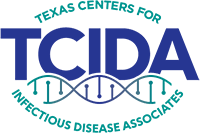Seeing an Infectious Diseases Doctor
If you are a patient being referred to an infectious diseases (ID) specialist, your first question may be, “What are infectious diseases?” The Infectious Diseases Society of America answers that question like this:
“Infectious diseases are caused by microscopic organisms that penetrate the body’s natural barriers and multiply to create symptoms that can range from mild to deadly. Although progress has been made to eradicate or control many infectious diseases, humankind remains vulnerable to a wide array of new and resurgent organisms.”
An important thing to know is that an infectious diseases specialist treats not only infectious diseases, but also routine infections. Therefore, infectious diseases are not necessarily contagious. In fact, most of the patients being treated by an infectious diseases physician are not contagious. Perhaps you are being referred to the ID doctor because you had surgery and the surgical wound developed an infection afterward, which is not uncommon. While this is different than an infectious disease that can affect the entire body (such as measles, malaria or HIV) or an infectious disease that affects only one organ or system of the body, the same ID physician can treat all of these types of illness.
You may ask why you need to see an infectious diseases specialist. Simply put, infectious disease doctors are often the “detectives” on a case. They are known for being thorough and smart. Sometimes the ID doctor sees a condition that may at first have the presentation of an infection, but the ID doctor’s “detective” work identifies the condition as something else. To do this, the ID doctor might ask the patient questions that may seem odd or unusual, but may ultimately lead to the answer. For instance, that aquarium, the recent trip to Colorado or questions about your cat may be pertinent to your situation. This requires the ID doctor “detectives” to be good listeners, which makes them good communicators in general, especially compared to other types of doctors. This is usually something that the patients notice rather quickly, as it reassures them that they are being heard. So, the infectious disease “detective” figures out what’s going on, and with that knowledge, the ID specialist maps out a treatment plant based on his/her expertise in the use of the antibiotics, antimicrobials or other treatments to fight against infectious diseases.
Another important thing to know is that infections and infectious diseases do not have a clear and defined presentation but instead affect different people differently based on a multitude of patient-specific factors including, but not limited to: overall health, age, gender, weight, personal habits (i.e. smoking and/or alcohol consumption), family history, immunization, surgical history, compromised immune system, presence of other diseases or medical conditions…the list goes on and on. Any or all of these factors may allow organisms that at times are ordinarily harmless to proliferate and cause illness, at times life-threatening. Therefore, there frequently may be no one clear answer for how to immediately eradicate an infection. Instead, the ID specialist will carefully assess all of the personal factors and define a treatment plan based on his or her years of experience in treating infections and infectious diseases.
The good thing to know is that the infectious diseases specialists at TCIDA have A LOT of experience. Our physicians have a combined 182 years of experience, with 123 of those years specializing in infectious diseases. We’ve seen A LOT. We’ve trained at top schools all over the United States, which means that we have experience treating different types of disease that may be more common in some parts of the country than others. We have experience treating patients internationally, too. What may be scary to another physician is probably something we see daily and consider somewhat normal. We also do a large amount of research in collaboration with public and private institutions including pharmaceutical companies, universities and government organizations, so we have access to emerging therapies and state-of-the-art medications before they are even publicly available. (Please see our Research page for more information.) So, if you are needing an infectious diseases doctor, please call us or have your primary care physician send a referral today. We look forward to treating you.













